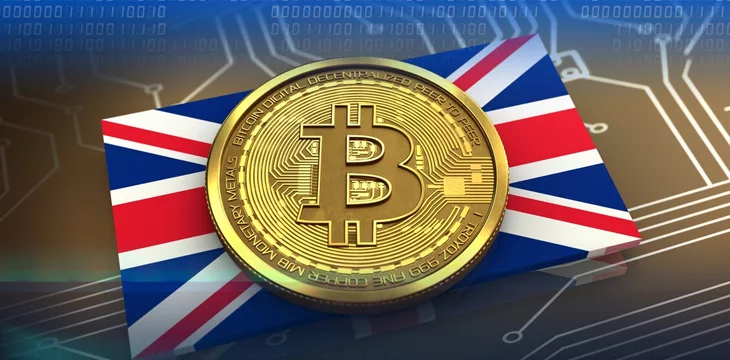|
Getting your Trinity Audio player ready...
|
New regulation allowing for digital asset confiscation and recovery is posed to come into effect in the United Kingdom, providing authorities with more powers to seize assets and increasing the possibilities for victims of fraud or crime to reclaim digital assets.
The Economic Crime and Corporate Transparency Act 2023, which comes into force on April 26, amends several other acts to, amongst other things, extend existing asset confiscation and recovery powers to digital assets.
First introduced in 2022, the bill was aimed at combatting digital asset crime as well as compensating its victims. It became law on October 26, 2023, after receiving Royal approval. On February 29 this year, the U.K. government published Statutory Instrument documentation granting law enforcement agencies the necessary new powers to freeze digital assets used in crime without requiring a conviction—this would, in theory, avoid the lengthy legal proceedings that may have previously held up the process.
“I am committed to ensuring criminals do not profit from their offending and this landmark act will help law enforcement clampdown on the tactics they use,” said the U.K. Home Secretary, Suella Braverman, when the bill was passed (Braverman has since left this Ministerial position).
She went on to state that “it will have a big impact on our ability to fight organised crime, including terrorist funding, fraud and money laundering, and that will ultimately help keep us all safe.”
The new provisions and powers
The act introduces criminal and civil recovery regimes for digital assets, or “cryptoassets,” as they’re referred to in the bill. It mandates exchanges and custodian services to cooperate with law enforcement agencies by providing them access to relevant transactional information and digital asset confiscation orders allowing authorities to take digital currency-related items—“item” is defined as “an item of property that is, or that contains or gives access to information that is likely to assist in the seizure… of any cryptoasset.”
By amending the Proceeds of Crime Act (POCA) 2002, which allows for court restraining orders to be issued and used by authorities to seize property, authorities will have the power to retrieve digital assets directly from exchanges and custodian wallet providers.
Broadly, there are two categories of asset recovery powers, which sit within the POCA criminal and civil regimes. Criminal powers are used to impose a debt against any person convicted of a crime who is found to have benefited from said crime; civil powers order the direct possession of identifiable assets deemed to have been obtained through unlawful conduct or are intended for use in unlawful conduct.
Provisions in the new bill specifically tailored to digital assets allow authorities to apply to courts directly for orders relating to digital asset exchanges hosting wallets containing crime-linked digital assets. This includes the ability to request that the court orders exchanges to liquidate assets subject to freezing orders. It also includes provisions for
competing ownership claims over digital assets, such as requiring a court to determine the true owner of digital assets before it orders an exchange to liquidate them.
“The provisions will broaden the circumstances in which seizure powers can be used for cryptoassets, allowing cryptoassets to be seized more quickly and in more cases,” explained the U.K. government fact sheet for the bill.
“This will prevent those assets being dissipated. It will provide law enforcement with the lawful authority to secure the cryptoassets and the relevant search and seizure powers to cater for their digital nature.”
One such law enforcement agency is the National Crime Agency (NCA), whose director, General Graeme Biggar, has praised the bill for offering “greater powers to seize and recover cryptocurrencies.”
What will happen to recovered digital assets?
Seized or ‘recovered’ digital assets, once the illicit holder is permanently deprived of the assets, will be sold and the proceeds used to compensate any victims or reinvested by the state into tackling economic crime.
In terms of returning assets to victims of fraud or theft—a somewhat divisive topic in the blockchain space—the U.K. government stated that the bill introduces a provision similar to what exists for cash and listed assets in POCA “to enable a person who claims that any cryptoassets detained belongs to them (the true owner) to apply to a court for the cryptoassets or part of them to be released.”
It’s unclear exactly how this process of proving “true” ownership of the assets would work in practice, but it is likely to involve more than mere possession of keys (which can, of course, be stolen), a major step forward for property rights in the digital asset space.
Digital asset recovery is a hot topic in the trillion-dollar industry, particularly with the high level of fraud and illicit finance in the space, and contrary to popular opinion, stolen blockchain-based digital assets can be recovered.
BSV was the first blockchain to enable digital asset recovery through the release of its Blacklist Manager, which can manage the coordination between transaction processors (nodes) to allow coins to be frozen by court orders issued by authorities and digitized by a registered notary service.
With spot BTC ETFs pulling the sector’s most popular digital asset further into the realm of mainstream finance, more and more blockchains are likely to adopt similar approaches to ownership and asset recovery.
Watch: CoinGeek Weekly Livestream with Kurt Wuckert Jr and Bryan Daugherty

 02-28-2026
02-28-2026 




